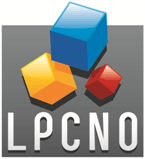Triazolium Salts as N-Heterocyclic Carbene Precursors for Organometallic Nanoparticles for H/D exchange reactions
CHEMISTRY & GREEN CHEMISTRY

Lab: LPCNO
Duration: NanoX master Internship (8 months part-time in-lab immersion)
5 months full-time internship
6 months full-time internship
Latest starting date: 01/01/2023
Localisation: LPCNO - 135 Avenue de Rangueil, 31077 Toulouse-France
Supervisors:
Bruno CHAUDRET chaudret@insa-toulouse.fr
This research master's degree project could be followed by a PhD
Work package:
Over the last years, H/D exchange reactions (HDE) has gained great importance due to the wide use of deuterated compounds. These products may be used for mechanistic reaction studies, as standards for liquid and gas chromatography, as well as promising drugs.1 Importantly, HDE reactions can be achieved through one-step C-H bond activation processes. Although this reaction has been catalyzed by homogeneous transition metal complexes (Ir, Ru, Rh, Pd o Pt), and some heterogeneous systems (Pd, Pt and Ru, supported on carbon), metal nanoparticles
(MNPs) have emerged recently as promising catalysts for this reaction.2 This is thanks to the unique properties provided by these systems in catalysis such as high surface/volume ratio, separation and recyclability, as well as control of reactivity and selectivity of the process by adding proper stabilizers and/or doping the surface with another metal (bimetallic NPs). In this sense, N-Heterocyclic Carbene (NHC) ligands have emerged as an important class of ligands due to their outstanding stereoelectronic properties, allowing their application as NP stabilizers.3
In the last years, our research group have reported different MNPs as catalysts for HDE reactions through C-H bond activation in different heteroaromatic compounds (nitrogen-based molecules, amino acids, etc.). We have worked in different systems for this process: Ru, RuPt, RuIr, Ni; Ni/NiO NPs among others.2 However, all of these works have been carried out using common NHC derived from imidazolium salts. In this sense, triazolium salts have emerged as an alternative for abnormal or mesoionic carbenes (abNHC).4 They have shown to be even more donating and stable than normal carbenes which may enhance the catalytic activity of abNHC-Metal based catalysts. Nevertheless, these carbenes have been scarcely explored as MNPs stabilizers5 and, to the best of our knowledge, there is no report about abNHC-Stabilized MNPs as catalysts for HDE reactions. In this project we propose to the applicant to carry out the synthesis and full characterization of MNPs (M = Ru, Ni, Pd) stabilized by abNHC ligands to study their application as catalysts for HDE reactions through C-H bond activation of different nitrogen-based molecules.
References:
1. Leeuwen, P. W. N. M. Van; Claver, C. Recent Advances in Nanoparticle Catalysis; Springer, 2020.
2. Lepron, M.; Daniel-bertrand, M.; Mencia, G.; Chaudret, B.; Feuillastre, S. Acc. Chem. Res. 2020, 54, 1465.
3. Zhukhovitskiy, A. V.; MacLeod, M. J.; Johnson, J. A. Chem. Rev. 2015, 115, 11503.
4. Guisado-Barrios, G.; Soleilhavoup, M.; Bertrand, G. Acc. Chem. Res. 2018, 51, 3236.
5. a) Diep. T. H.; et al. Chem Mater. 2021, 33, 9588. b) Liu, T.; et al. Natl Sci Rev. 2022, 9, nwac067
Areas of expertise:
HDE, Nanoparticles, abnormal N-Heterocyclic Carbene (NHC) ligands, triazolium salts, C-H bond activation
Required skills for the internship:
Knowledge in organometallic chemistry, NHC ligands, catalysis and synthesis and characterization of metallic nanoparticles
